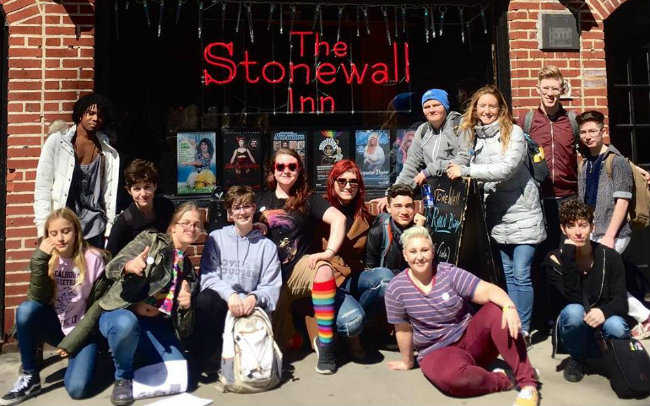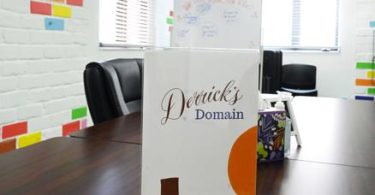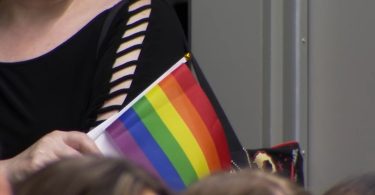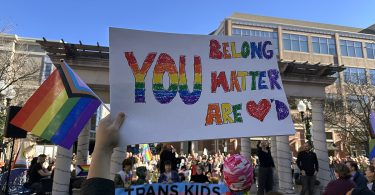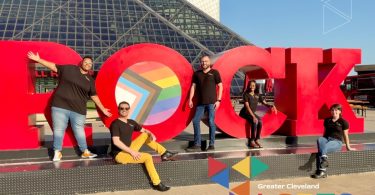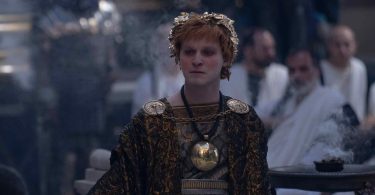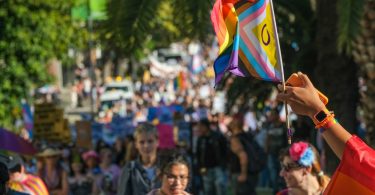Camp is a big part of many kids’ childhoods. Summer camp, overnight camp, these experiences can form lifelong impressions, memories, and friendships for people. For LGBTQ youth, they can also provide safe spaces for them to learn about and embrace themselves and their community.
That’s why Puck Markham created Camp Lightbulb in 2011. After doing a year of research
Located in various cities along the East and West Coasts of the United States, there are all sorts of experiences for campers. They have summer and winter camps, a Halloween camp, and starting next Sunday (29 July), they’re launching their first weeklong Leadership Camp.
GSN spoke to Markham about his massive endeavor, what it offers, and why it’s so important.
How did this camp start and where did the name come from?
I came up with this idea 7 or 8 years ago. I was traveling to Provincetown, Massachusetts, which is very LGBTQ-friendly. I’ve been out for 20, 25 years and I was still struck by how liberating it felt.
I remember growing up as a gay teen, going to sailing camp, and not being able to fully be myself. I thought, ‘Wow, this would be an amazing experience for teens’.
As for the name, it was a lightbulb idea. I really liked the image of light and its positvity. The design of a lightbulb was inspired by the art of Keith Haring.
At Stonewall Inn | Photo: Facebook/Camp Lightbulb
The website says Camp Lightbulb offers community, well-being, and service — what does this mean for LGBTQ youth?
We’re pretty unique in that we locate our camps in places with strong, vibrant gay communities. We try and connect our camps to the community, with local guests like a speaker or drag queen. It broadens their experience with their community, even if they don’t get it on a everyday basis.
As a camp, we’re all about fun and memories. What ends up happening is that the kids bond with each other and their counselors, and discussions of things like bullying, we can pick up in a more casual environment. It happens in spontaneous, breakout sessions to explore issues they might have in a low-key, organic way.
With service, we’ve done beach cleaning and this year we’re doing a garden.
What about kids who might have difficulty getting to the camp?
We’re a needs-based program so you are always welcome. We offer scholarships and financial help for families who might need it.
And next year, we’re looking at having a camp in the midwest and another in the south.
Why do you think it’s important for your counselors to have training?
Almost all of counselors are part of the LGBTQ community, some are Allies. It’s important we reflect the broad spectrum of who are kids are.
The training — well, first and foremost we do a full background check. Then the training is internal, with a full day going over issues like safety and mental health.
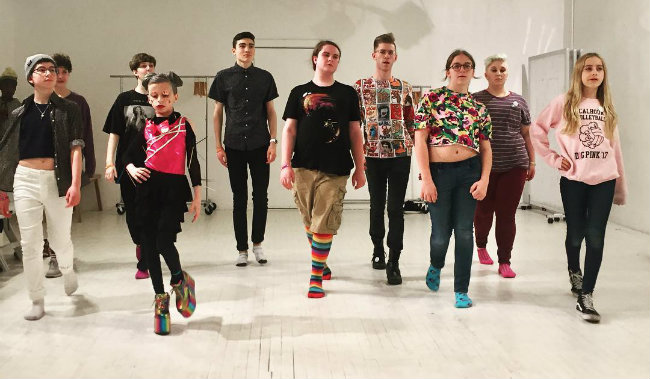
Campers practicing for a vogue ball | Photo: Facebook/Camp Lightbulb
Camps last a week — what happens at the end and kids have to leave a safe space like this?
At the end of the week it’s heartbreaking. For that one week, we create that one-of-a-kind, special community.
The way I’ve always looked at it is that we create a stepping stone on their journey to becoming their true selves. Friendships and connections are made that last. We have an informal Facebook page where we can keep in touch too.
Our focus isn’t resources, but exploring how to keep that community going. It’s another part of our training this year, actually.
What is the leadership camp?
It’s so obvious kids have a voice and we want to help them figure out how they can have an impact on society. It’s about giving them both tools and inspiration.
The camp is based in New York, with a side trip to DC. We have a number of workshops lined up with Amnesty International, the Victory Fund, and PFLAG.
We’re starting to explore themes in our camps, which is where this came from. This spring, we had a drag-themed camp and it was really successful.
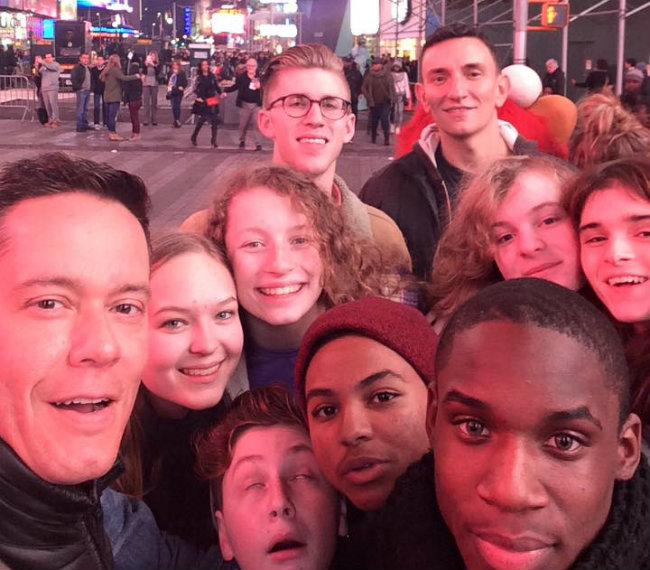
Puck with campers in NYC | Photo: Facebook/Camp Lightbulb
What is the most gratifying part of this camp for you?
It’s a great question to ponder every now and then.
As we get so busy, you sometimes kind of forget why this all started in the first place. For me, it’s important to do something that I believe in and reflects what’s important in life.
Secondly, as a gay person, knowing when I was growing up, it was extremely hard to find role models and the community. What we see with almost all of our kids is that they’re extremely lonely or isolated, because their school might not be accepting, or their family might not be accepting.
So to create something that would have had an impact on my life, I now get to do for the younger people of our community. It’s so worthwhile and satisfying.
Visit the Camp Lightbulb website here.

